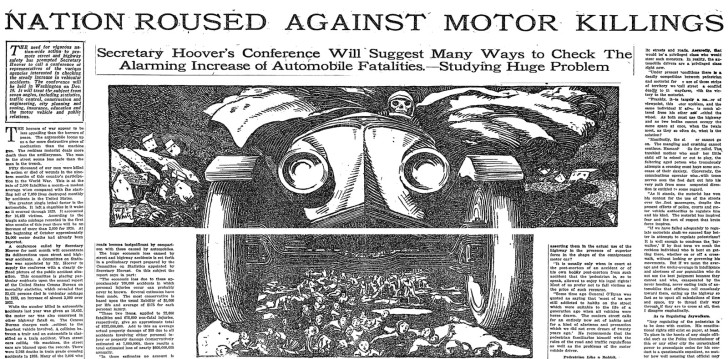Crash, Not Accident: How to Refer to Auto Collisions
Denver injury attorney discusses the Crash, Not Accident campaign
Our Denver car accident attorneys have extensive experience handling injury cases. It doesn’t matter if you have a minor scrape or a major collision, we are here for you.
To most people, “crash” and “accident” are synonymous when discussing collisions involving two or more vehicles. However, some advocacy groups in the traffic safety industry are beginning to shed light on the important differences between these two words and the impact it can have. These advocates are now pushing for public officials, journalists and people on the streets to join them in saying crash, not accident.
Two major groups – Transportation Alternatives and Families for Safe Streets – are driving the Crash, Not Accident campaign. Their argument is that using the term “accident” suggests that all vehicle crashes are inevitable rather avoidable as is most often the case. This connotation, they say, harms society by normalizing the concept of crashes and could work to discourage investigation into their causes.
The Crash, Not Accident movement believes that the first step to decreasing the roughly 30,000 vehicle deaths that occur each year is to begin to examine and alter the language used when discussing these fatal and serious collisions.
How “Accident” Became Normal in the First Place
(Photo credit: New York Times, Nov 23, 1924)When the first cars came off the assembly lines, they were unpredictable and often dangerous. For this reason, the New York Times graced its November 23, 1924 cover with the image of vehicles being killing machines (pictured above). Many of the incidents involving these early vehicles were far from accidental – they were clearly the result of inexperienced drivers and manufacturer flaws.
Before modern traffic laws came about, judges typically ruled that the larger vehicle involved in an auto collision was at fault and in incidents that involved pedestrians, drivers were charged with manslaughter. The biggest influence to introduce the word “accident” was the automotive industry. They started the push of using “accident” in order to soften the news coverage and public image of the many auto collisions that were occurring.
The Emergence of the “Crash, Not Accident” Movement
Back in the early 1960s, advocates of traffic safety came to the realization that saying “accident” was doing more harm than good when describing a vehicle collision. In fact, in 1966 the first National Highway Traffic Safety Administration (NHTSA) director, William Haddon, began a policy that whomever used the term “accident” during meetings was required to put a dime in a jar.
In 1994, the NHTSA asked the public to refrain from using the word “accident” to discuss vehicle collisions and the NHTSA itself does not use the word when discussing official business. As recently as 2013, a number of city police departments (most notably New York and San Francisco) have quit using the word “accident” when filling out collision reports.
Does a Single Word Really Matter?
Put simply, yes a single word does matter. This is because using the word “accident” implies that nothing could be done to stop the collision from occurring. For instance, take an incident that occurred in 2006 when an SUV driver purposefully used their vehicle to strike five people and then was caught “fleeing the scene of the accident.”
The problem with this story is that the two events – the driver “intentionally” running over five people and the use of the word “accident” – are contradictory.
As far as the words “crash” and “accident” go, crashes can be amended and even prevented by making streets safer and reporting dangerous drivers. The only purpose the word “accident” has in terms of vehicle collisions is to provide absolution for guilty drivers.
The use of these two words will not change overnight. Let’s face it, people have been working to say “crash” in place of “accident” for over half a century. However, we can continue to spread the message and provide support for those involved in vehicle crashes.
If you or a loved one have been involved in a vehicle crash and need assistance getting the justice and help you need, please contact The Babcock Law Firm to discuss your case. You are also welcomed to find more information about vehicle collisions and our other practice areas by browsing our blog and knowledge center.
Disclaimer
While the Babcock Law Firm tirelessly works to obtain successful outcomes for its clients, prior positive outcomes are no guarantee of future success. Indicating prior positive results is in no way intended to guarantee future results.


